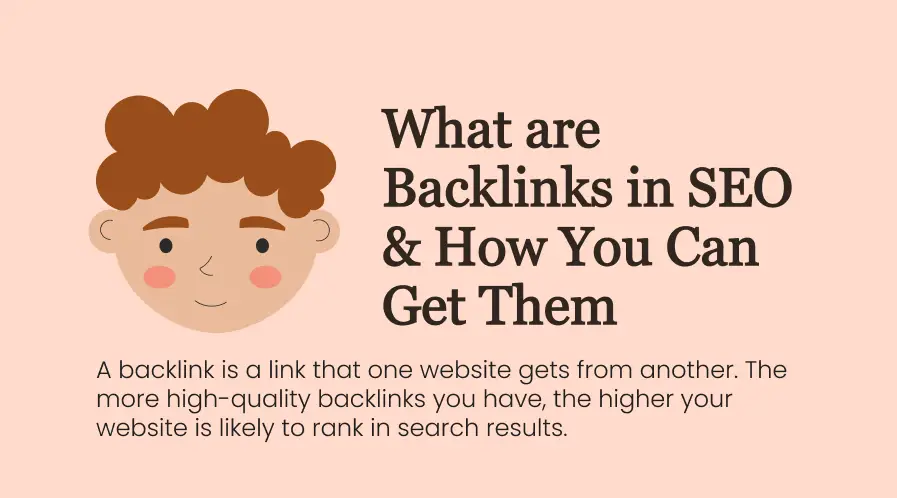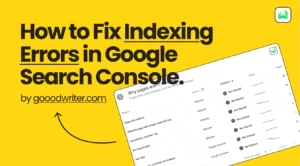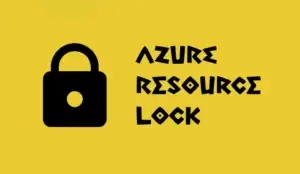If you trying to SEO boost your website, yet have no idea about backlinks, this article is for you.
Backlinks are links from a page on one website mentioning another. Also called inbound links or incoming links. Search engines like Google & Bing use backlinks as a trustworthy resource when ranking pages.
It is common for websites to gain backlinks naturally with time, but marketers often put in effort to create and sustain them.
For example, Good Writer has this backlink from Medium:

The two main types of links
Before diving deeper into backlinks, it’s better to have a basic understanding of the different types of links (link building). So, you will know exactly, what category the backlinks belong to.
The two main types of links you can find on any web page are;
- Internal links.
- External links.
Internal links
When a page links content to the same domain or website, those types of links are called internal links. Having these links is much as important as having backlinks to a website to rank higher on search results.
External links
As you can probably tell when an outgoing or outbound link to another domain is placed within a website, those are called external links.
(In the above backlink example, Medium is the referring site that has placed an external link to Good Writer.)

Why are backlinks important?
Backlinks are important for a website in many ways, but three reasons are prominent.
- SEO (Search Engine Optimization) — Basically they are like favors or votes from other websites — Each saying your content is valuable and trustworthy.
- Search engine rankings — The more votes (backlinks) your website wins, the higher your site will rank in Google and other search engines.
- Higher organic traffic— Search engines often crawl (visit) web pages to find the most suitable content to index & display within their rankings. And they may discover your content faster if you have more backlinks from other pages.

Google has confirmed — that it always considers and continues to use backlinks as a key factor when ranking pages using its search engine algorithm (Originally known as “PageRank”).
Are all Backlinks valuable the same for ranking?
Of course not. Not all backlinks are considered equal.
Search engines like Google and Bing consider several factors to identify whether a backlink is valuable or not.
- Website Authority
- Content Relation between pages
- Dofollow links
- Placement of the backlink
- Links within the content (Hyperlinks)
Let’s talk deeper about them.
Authority
You need quality backlinks rather than hundreds of fake or low-quality backlinks. As it turns out, the more authority the website referring you have, the more quality the back-link gets — resulting higher organic traffic rates.
It means if the page referring to you is popular, you have a greater chance of getting high traffic.

Google search rank algorithm
“PageRank (PR) is an algorithm used by Google Search to rank web pages in their search engine results. It is named after both the term “web page” and co-founder Larry Page. PageRank is a way of measuring the importance of website pages.” — Wikipidia
With that said, backlinks are not the only factor Google algorithm uses to rank content, but they certainly play a major role in boosting the organic traffic a web page gets.
Backlinks with related content have more value
Think you are doing a food blog and your pages have backlinks to another blog which is a blog about poetry. Can you see a relation?
No. Right?
Google thinks the same way. When it crawls a page it gives priority for content relation. If the backlink you referring to has a strong connection to what you are writing, Google considers it a valuable backlink.

Read 13 Reasons Why You Should Start a Blog.
Do follow Links
There are two other important types of links that a reader will never see or identify unless peak into its HTML code. But they are super important for web ranking. We called them,
- Do-follow links
- Nofollow links
Here is a do-follow link & here is a nofollow link. Obviously, both links take us to a certain destination and both look the same. But there’s a difference.
follow/ Dofollow link has no rel attribute.
<a href="https://gooodwriter.com/">do-follow</a>
nofollow link has a rel attribute.
<a href="https://gooodwriter.com/home/resources" rel="nofollow">nofollow</a>
Apart from the “nofollow” tag, there are also “sponsored” and “ugc” tags.

Dofollow links help with search engine rankings. On the other way, Nofollow links don’t. It’s as simple as that.
Google and other search engines ignore & don’t crawl links with the nofollow attributes. Hence, they do not affect search engine rankings.

They do have a good reason for doing that. Let’s hear what Google says.
“If you’re a blogger (or a blog reader), you’re painfully familiar with people who try to raise their own websites’ search engine rankings by submitting linked blog comments like “Visit my discount pharmaceuticals site.” This is called comment spam, we don’t like it either, and we’ve been testing a new tag that blocks it. From now on when Google sees the attribute (rel=“nofollow”) on hyperlinks, those links won’t get any credit when we rank websites in our search results. This isn’t a negative vote for the site where the comment was posted; it’s just a way to make sure that spammers get no benefit from abusing public areas like blog comments, trackbacks, and referrer lists.”
That being said, always try to use proper tags appropriately.
Placement of the backlink
When you are visiting a web page, what is the place you see first? The top position of it. Everyone sees that. So, what happens if it has a backlink to your website?
Ah! Instant traffic right?
Further down the placement of the link, the chance of that link being seen by visitors will be low. Resulting, in lesser traffic you will get.

So, you might ask them to give your link a proper position with their content. Or you could target a good position and write an article for that.
Links within the content give more value
Clickable words or Anchor text add more value than direct links when page ranking according to what Google says describing their page rank algorithm.

But, remember not to overdo it with un-relevant page links. It will make the content less readable and could negatively affect readability scores.
How to Get Backlinks
There are several ways to get backlinks to your site:

Asking for backlinks
Yes. You can always ask for backlinks. This is when you reach out to other bloggers, and product pages and ask them to add a link to your page or website. But your content should have a clear value to them. Otherwise who wants to drive traffic from their website?
You can try the following things:
- Guest posting: Writing useful content for another blog and offering it. If you want to guest post on my blog fill the forum on this page.
- Broken link building: Search for any previous links that are now dead (When you changed the URL) and contact owners to update them. They will more than welcome it because they do not want their readers to go to a dead page.
- Linkable mentions: Sometimes other bloggers will mention your comment or piece of your content on their blogs and forget to link it. Contact them and remind them to link back to your original post.
Other than this, you will meet other bloggers and get to know them with time. Propose them to help each other and add backlinks to each other.
But remember to link only the related and useful content. Otherwise, Google will penalize both sites to rank down.
Buying backlinks
This is something I never recommend you to do. In your first stages when you are trying to get a backlink however it’s possible, you’ll come across offers to buy links — don’t take it.
Buying backlinks is highly risky because Google strongly opposes it, and it can lead to your site being penalized with lower SEO scores.
Time will get you more backlinks
Over time, you will gain more backlinks, which is the most natural way that search engines like Google favor. As people become familiar with your content and recognize its value, they will link to your posts.
To speed up things, you could promote your content too. Try to make social media posts, mini-stories, and forums to share your value among people. The more people you reach, the more links you can get.
Adding backlinks
Some websites offer the option to manually submit a link or request its submission. While it may seem simple to acquire a link this way, it’s not always beneficial. These links may carry little value in the eyes of Google or they could be considered spammy if overused.
While I’m not recommending it you can choose whether to do it or not. Just try one or two because it’s better to experiment with everything first. No one builds anything better overnight.
Final Thoughts
Backlinks are one of the most valuable assets a blogger can own. Especially in trending queries. This guide will teach you everything about it from what is a backlink to how you can get backlinks from other bloggers.
I’ll update every bit of this with time & you are most welcome to ask anything you need to know.
Looking for how to start your own blog? Refer to this page for every resource from beginner to pro-level blogger will need.
More to read now:
- Learn why you need to start your own blog
- How to find the best keywords with low difficulty
- How to credit images the right way.
- When to use follow links & when to use nofollow links
Happy blogging.





This Post Has 3 Comments
For anyone who hopes to find valuable information on that topic, right here is the perfect blog I would highly recommend.
Thanks a lot for the kind words Carol
Absolutely Marvin. It’s a slow process, but worth every bit of it 🙂